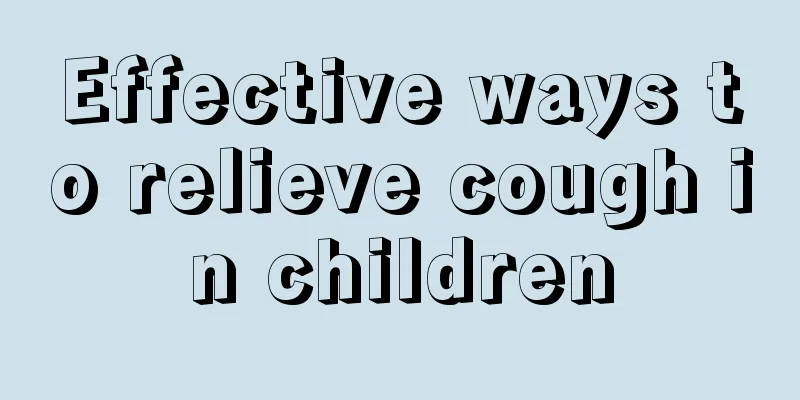How to determine whether eczema is caused by milk powder

|
When babies are born, they are not very adaptable to external food and are generally fed with breast milk. After a period of breastfeeding, they will be fed with milk powder. Milk powder is a kind of food that many babies eat, and there are many other ingredients in milk powder. Eczema is a common skin inflammation in babies. Many reasons can cause eczema, including milk powder. So how to judge whether eczema is caused by milk powder? Speaking of eczema, I believe many mothers know that it is a common skin disease in infants and young children. It can be caused by various allergic factors or recurrent attacks, such as food factors, contact factors, etc. Some children may also develop eczema due to milk powder allergies. In this case, parents should pay attention to choosing milk powder that is not easy to cause allergies.Children are very prone to eczema, which is mainly due to their immature immune system and delicate and sensitive skin. Therefore, they are easily stimulated by some external factors and cause eczema. Of course, some children's eczema is related to food allergies. For example, some babies will be allergic to milk powder, which leads to eczema. So how do you determine whether babies with eczema are caused by milk powder? Let's find out together. For babies with eczema, if you are not completely sure that they are allergic to milk protein, you can feed the baby deeply hydrolyzed milk powder to observe. If the eczema does not subside after changing the feeding, then it may not be an allergy to milk protein and the baby can continue to eat ordinary formula milk. If you find that the eczema gradually subsides after observation, it may be caused by an allergy to milk protein. In order to make a better judgment, it is recommended to adopt the "trial and error" method, that is, feed a small amount of ordinary formula milk powder. If the eczema recurs, it means that the child is indeed allergic to milk protein, and it is necessary to change to deep hydrolyzed milk powder until the child is over 1 year old and then observe the situation.In addition, you can also judge whether the baby is allergic to milk powder by observing other reactions of the baby, such as: Gastrointestinal aspect: If you find that your baby refuses to drink milk, vomits, or has symptoms such as diarrhea, abdominal pain, and bloating, it may be related to intestinal allergies. Factors that affect intestinal allergies may be related to dietary habits such as protein allergies. Skin: Infant eczema, also known as milk rash, is a common skin disease that can be caused by internal and external factors. It usually appears 1 to 3 months after birth. If the baby is allergic to protein, a rash will appear on the skin after feeding. Respiratory aspect: For some babies who have symptoms such as wheezing, frequent coughing, runny nose, rhinitis, etc., they may also be allergic to milk powder. If they develop eczema after eating milk powder, you can use desensitizing formula milk powder instead.The above is a method to determine whether children’s eczema is caused by milk powder. When the baby has eczema, parents suspect that it is caused by milk powder. They may try the above method and pay attention to observe the baby’s symptoms in all aspects to better judge the results. Once the baby’s eczema is caused by milk allergy, other milk powders that are less likely to cause allergies can be used. |
<<: Olive oil for baby's dry eczema
>>: Can children's pityriasis alba heal on its own?
Recommend
What food is good for students to nourish their brains?
During the critical period of learning and growth...
What's going on when my baby has small red bumps on his body?
Small red pimples on the baby's body must be ...
What are the methods of making crucian carp soup for 1-year-old babies?
Drinking fish soup regularly is not only good for...
The child has a high fever for three days
Some parents delay treating their children when t...
Can babies eat cheese? Control the amount every day!
Cheese is a food with very high nutritional value...
What's wrong with the baby's red spots?
Babies are the ones we need to focus on taking ca...
Can children take roxithromycin?
In daily life, roxithromycin is a common drug. Ch...
Why does my child’s head always sweat when sleeping?
Many people have experienced sweating on their he...
What is the cause of precocious puberty in children?
Precocious puberty has become a very serious prob...
What is the standard of the children's height and weight comparison table?
After the baby is born, he will be cared for by h...
What are the causes of low platelet count in newborns?
Low platelet count does not only affect young peo...
Why do children sweat so much?
If a child likes to sweat, parents will definitel...
What to do if your 2-month-old baby has less sleep time
Every family hopes that their baby can grow up he...
A 10-year-old girl has acne on her face
Once a girl develops acne or pimples on her skin,...
What causes excessive eye secretions in children? Reveal the reason for you
If you find that your child has a lot of secretio...









